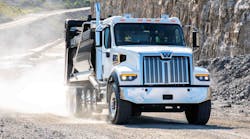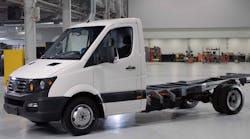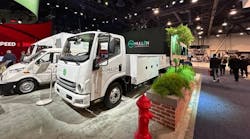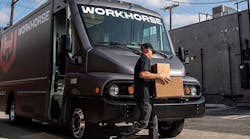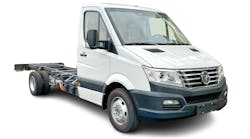Rusty" Rush – chairman, CEO and president of Rush Enterprises – believes the over-the-road Class 8 truck market “is going to be tough” in 2017, but Class 4-7 medium-duty sales should remain steady heading into next year.
“It [the medium-duty segment] has been good the last two years; we expect that to continue,” Rush explained in a meeting with reporters at the company’s 2016 Rush Technician Skills Rodeo.
“But you have to remember over-the-road is 70% of the [commercial truck] market,” he stresses. “And for once I agree with Kenny Veith [president of ACT Research]; Class 8 sales will be off 20% next year. And I really don’t see it getting any better in the first half of 2017; it’s going to be an uphill battle.”
Rush predicted at the end of 2015 that the truck market would be tough this year and felt that his prediction more or less came true.
The company’s third-quarter results, released in late November, bear that out as revenues of $1.096 billion and net income of $14.9 million are down compared to revenues of $1.294 billion and net income of $19.9 million in the same quarter back in 2015.
"A sluggish energy sector, choppy freight environment, excess Class 8 fleet vehicle capacity, and low used truck values continued to negatively impact our new and used Class 8 truck sales and parts and service revenues," Rush said in the company’s third quarter earnings statement.
"Additionally, the consolidation of several of our truck centers earlier this year has also impacted parts and service revenues when compared to the third quarter of 2015,” he added. “On a positive note, we are seeing some increased aftermarket activity on both coasts where construction remains strong.”
In his conversation with reporters this week, Rush reiterated that the construction and refuse truck markets in particular should remain strong heading into 2017.
He also said the company will “continue to look to expand our footprint where the opportunities make sense,” largely in response to continued “consolidation” in its customer base.
Rush also thinks the “increasing complexity of trucks” is a trend that “bodes well for us” as it should increase demand for the company’s parts and service operation.
We’re having larger customers who want to do more service work with us,” he said. “That’s what we do; we work on trucks. We make the investments in training, technicians and equipment that they can’t. And it’s not just maintenance we’re talking about; it’s repair work. But it’s going to take more investments on our part as the [truck] technology keeps getting more complex.”
For that reason, Rush said his company will continue to invest in several “strategic initiatives,” which includes more data-driven truck service offerings such as its RushCare Service Connect system rolled out back in March.
Rush also pointed out that a “changing of the guard” is occurring at the top echelons of the trucking industry as many trucking executives “who came of age during deregulation” in the 1980s are now starting to retire.



